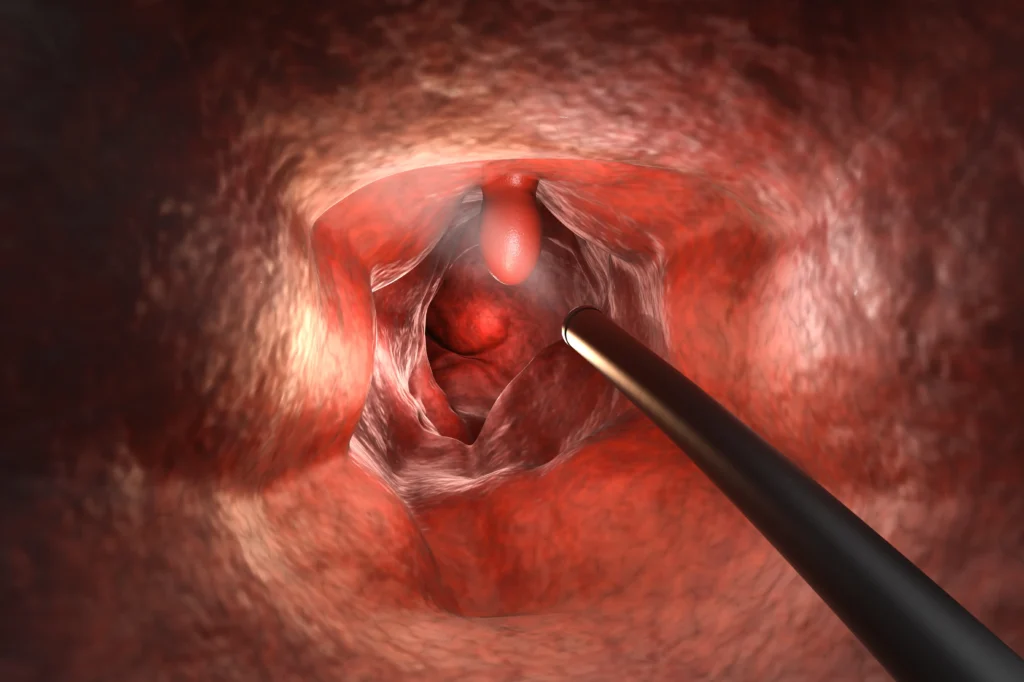Like any medical test, flexible sigmoidoscopy has some risks. However, most people don’t have any problems.
At GI Partners of Illinois, your safety is our top concern. We take every step to make sure you’re safe and comfortable throughout the procedure.

Most people don’t need sedation (medicine to make you sleepy) for this test. But if you do, your doctor will recommend it based on your health.
The test usually takes about 20 to 30 minutes.
You might feel some pressure or mild cramps. However, most people do not find it too uncomfortable.
Your doctor will let you know how often you need this test based on your symptoms and overall health.
A flexible sigmoidoscopy checks only the lower part of your colon (the rectum and sigmoid colon). A colonoscopy checks the whole colon. That means sigmoidoscopy is quicker and needs less preparation.
Yes. The day before the test, you’ll need to eat a low-fiber diet and drink only clear liquids. Your doctor will give you simple and clear steps to follow.
If you’re at average risk, you might need this test every 5 years to check for colon cancer. But it can vary, so it’s best to ask your doctor what’s right for you.